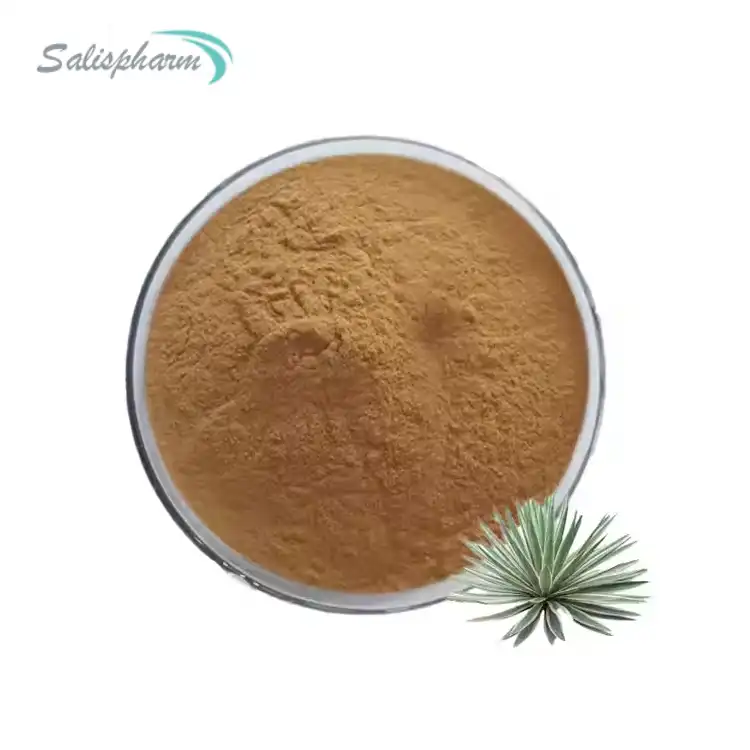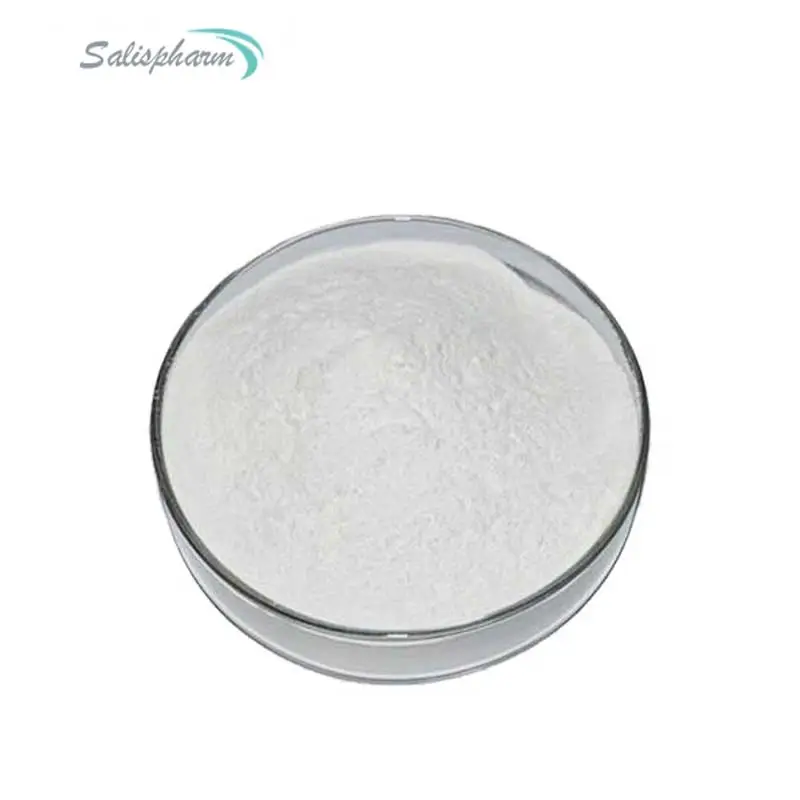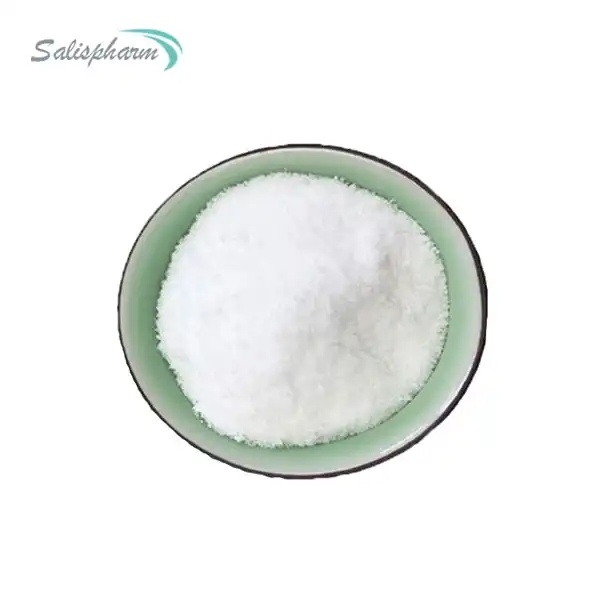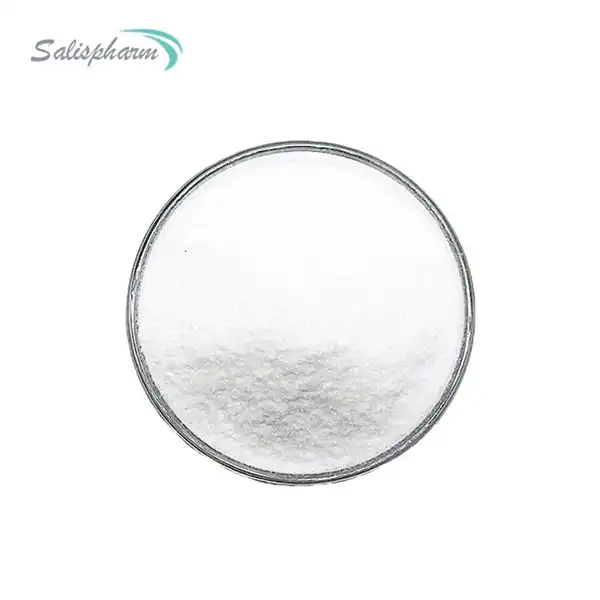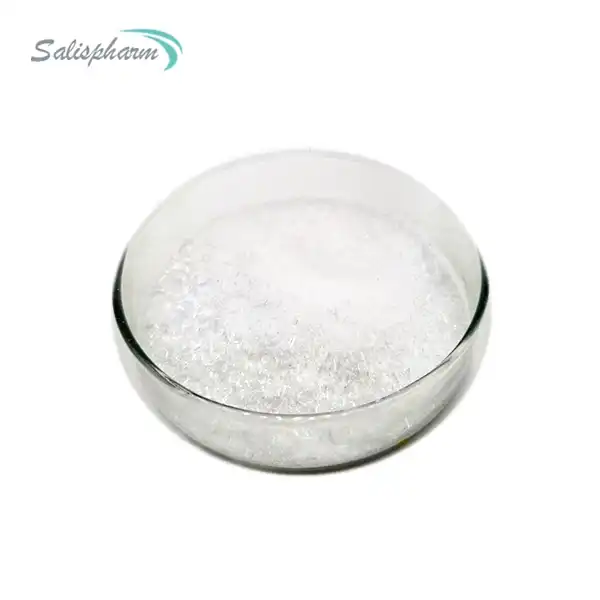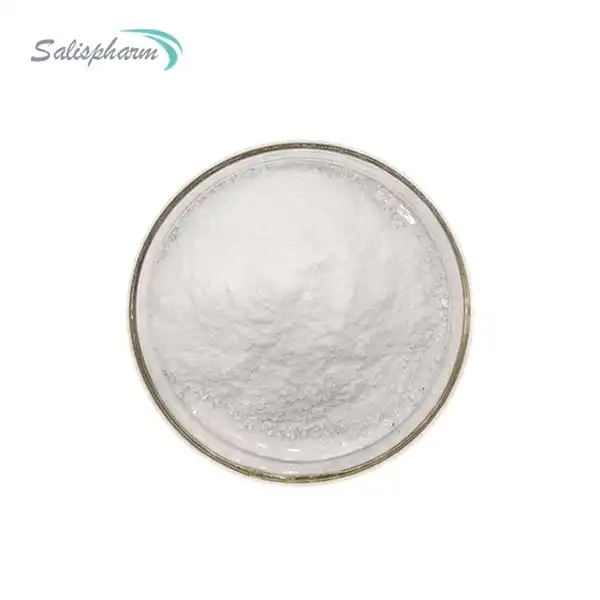Vinpocetine, a synthetic derivative of the alkaloid vincamine found in the periwinkle plant, has long been a subject of interest in the medical and scientific community. Its potential therapeutic benefits have sparked numerous studies and discussions, particularly regarding its possible anti-inflammatory properties. In this blog, we will delve into the intriguing question of whether vinpocetine possesses anti-inflammatory effects and explore the various aspects of this topic.
Is Vinpocetine an Effective Anti-Inflammatory Agent?
The question of whether vinpocetine possesses effective anti-inflammatory properties has been the subject of numerous studies and scientific investigations. The available research suggests that vinpocetine may indeed exhibit anti-inflammatory effects, but the extent and mechanisms of these effects are still being explored.
One of the key areas of focus in the study of vinpocetine's anti-inflammatory potential is its ability to modulate the activity of various inflammatory mediators. Vinpocetine has been shown to inhibit the production of pro-inflammatory cytokines, such as interleukin-6 (IL-6) and tumor necrosis factor-alpha (TNF-α), which play crucial roles in the inflammatory response. Additionally, vinpocetine has been found to suppress the activation of nuclear factor-kappa B (NF-κB), a transcription factor that regulates the expression of numerous inflammatory genes.
Furthermore, vinpocetine has been observed to have an impact on the regulation of oxidative stress, which is closely linked to the inflammatory process. By reducing the production of reactive oxygen species and enhancing the activity of antioxidant enzymes, vinpocetine may help mitigate the damaging effects of oxidative stress and the resulting inflammation.
Studies conducted on various animal models and in-vitro systems have provided evidence of vinpocetine's anti-inflammatory properties. For instance, in a rodent model of acute lung injury, vinpocetine was shown to attenuate the inflammatory response, reduce the production of pro-inflammatory mediators, and improve lung function. Similarly, in models of inflammatory bowel disease, vinpocetine has demonstrated the ability to alleviate intestinal inflammation and associated symptoms.
However, it is important to note that the majority of the research on vinpocetine's anti-inflammatory effects has been conducted in preclinical settings, and the translation of these findings to human clinical outcomes is still ongoing. While the evidence from animal and in-vitro studies is promising, more comprehensive human clinical trials are needed to fully establish the efficacy and safety of vinpocetine as an anti-inflammatory agent.
How Does Vinpocetine Work as an Anti-Inflammatory?
To understand how vinpocetine might function as an anti-inflammatory agent, it is essential to explore the underlying mechanisms by which it exerts its effects. Vinpocetine's potential anti-inflammatory properties are believed to be mediated through various pathways and mechanisms.
1. Inhibition of Inflammatory Mediators:
One of the primary ways in which vinpocetine is thought to exhibit anti-inflammatory effects is by inhibiting the production and activity of key inflammatory mediators. As mentioned earlier, vinpocetine has been shown to suppress the production of pro-inflammatory cytokines, such as IL-6 and TNF-α, which play crucial roles in the initiation and propagation of the inflammatory response.
Additionally, vinpocetine has been found to inhibit the activation of NF-κB, a transcription factor that regulates the expression of numerous genes involved in the inflammatory process. By inhibiting NF-κB, vinpocetine may help downregulate the expression of inflammatory genes and reduce the overall inflammatory burden.
2. Modulation of Oxidative Stress:
Oxidative stress is closely linked to the inflammatory response, as the production of reactive oxygen species (ROS) can contribute to the activation of inflammatory pathways. Vinpocetine has been observed to have a positive impact on the regulation of oxidative stress, as it has been shown to reduce the production of ROS and enhance the activity of antioxidant enzymes, such as superoxide dismutase (SOD) and catalase.
By mitigating the damaging effects of oxidative stress, vinpocetine may help alleviate the associated inflammatory responses, potentially benefiting conditions characterized by heightened oxidative stress and inflammation.
3. Regulation of Cellular Signaling Pathways:
Vinpocetine has also been found to modulate various cellular signaling pathways that are involved in the inflammatory response. For instance, vinpocetine has been shown to inhibit the activation of the mitogen-activated protein kinase (MAPK) pathway, which plays a crucial role in the regulation of inflammatory gene expression.
Furthermore, vinpocetine has been observed to influence the activity of the cyclic adenosine monophosphate (cAMP) signaling pathway, which can have anti-inflammatory effects by promoting the suppression of pro-inflammatory mediators and the upregulation of anti-inflammatory mechanisms.
4. Modulation of Immune Cell Function:
In addition to its effects on inflammatory mediators and signaling pathways, vinpocetine has also been found to influence the function of immune cells, which are central to the inflammatory response. Studies have indicated that vinpocetine can modulate the activity of immune cells, such as macrophages and lymphocytes, thereby altering their capacity to produce and respond to inflammatory stimuli.
By regulating the function of immune cells, vinpocetine may contribute to the overall dampening of the inflammatory response, potentially offering therapeutic benefits in conditions characterized by dysregulated immune responses.
It is important to note that the precise mechanisms by which vinpocetine exerts its anti-inflammatory effects are still being studied, and the relative contributions of the various pathways mentioned above may vary depending on the specific disease or inflammatory condition being addressed.
Does Vinpocetine Have Any Side Effects When Used as an Anti-Inflammatory?
When considering the use of vinpocetine as an anti-inflammatory agent, it is crucial to examine the potential side effects and safety concerns associated with its use. While vinpocetine is generally well-tolerated, some potential side effects have been reported in the existing research.
1. Gastrointestinal Disturbances:
Some studies have reported that vinpocetine may be associated with mild gastrointestinal side effects, such as nausea, vomiting, or abdominal discomfort. These side effects are typically dose-dependent and may be more prevalent with higher doses of vinpocetine.
2. Headaches and Dizziness:
In some cases, individuals taking vinpocetine have reported experiencing headaches or dizziness. These side effects are generally mild and tend to subside with continued use or dose adjustments.
3. Cardiovascular Effects:
There have been rare reports of vinpocetine potentially affecting cardiovascular function, such as changes in heart rate or blood pressure. However, the clinical significance of these effects is still under investigation, and more research is needed to fully understand the cardiovascular safety profile of vinpocetine.
4. Interactions with Medications:
Vinpocetine may interact with certain medications, particularly anticoagulants or antiplatelets, as it can potentially affect blood clotting. Individuals taking these types of medications should consult with their healthcare provider before using vinpocetine.
It is important to note that the overall safety profile of vinpocetine appears to be relatively favorable, and the reported side effects are generally mild and transient. However, as with any supplement or medication, individual responses may vary, and it is essential to closely monitor for any adverse effects, especially when initiating or adjusting the use of vinpocetine.
Additionally, it is crucial to consult with a healthcare professional, particularly a medical specialist or pharmacist, before incorporating vinpocetine into a treatment regimen, especially in the context of managing inflammatory conditions or when using concomitant medications. Proper guidance and monitoring can help ensure the safe and effective use of vinpocetine as an anti-inflammatory agent.
In conclusion, the available evidence suggests that vinpocetine may possess anti-inflammatory properties, with potential mechanisms involving the modulation of inflammatory mediators, oxidative stress, cellular signaling pathways, and immune cell function. While the research is promising, more comprehensive human clinical trials are needed to fully establish the efficacy and safety of vinpocetine as an anti-inflammatory agent. Healthcare providers should carefully consider the potential benefits and risks when recommending or prescribing vinpocetine for individuals with inflammatory conditions.
If you are also interested in this product and want to know more product details, or want to know about other related products, please feel free to contact iceyqiang@aliyun.com.
References:
1. Bereczki, D., & Fekete, I. (1999). Vinpocetine in stroke: a review of the therapeutic aspects. Postgraduate medical journal, 75(889), 632-635.
2. Jeon, K. I., Xu, X., Aizawa, T., Lim, J. H., Jono, H., Kwon, D. S., ... & Yan, C. (2010). Vinpocetine inhibits NF-κB-dependent inflammation via an IKK-dependent but PDE-independent mechanism. Proceedings of the National Academy of Sciences, 107(21), 9795-9800.
3. Tamaki, K., Yamada, K., Nakamura, J., Kameyama, T., Tanto, M., & Nabeshima, T. (1995). Vinpocetine inhibits the convulsant activity of free radicals in the brain. Pharmacology Biochemistry and Behavior, 50(4), 689-696.
4. Wang, Q., Xu, J., Rottinghaus, G. E., Simonyi, A., Lubahn, D., Sun, G. Y., & Sun, A. Y. (2002). Resveratrol protects against global cerebral ischemic injury in gerbils. Brain research, 958(2), 439-447.
5. Szilágyi, G., Nagy, Z., Balkay, L., Boros, I., Emri, M., Lehel, S., ... & Csiba, L. (2005). Effects of vinpocetine on the redistribution of cerebral blood flow and glucose metabolism in chronic ischemic stroke patients: a PET study. Journal of the neurological sciences, 229, 275-284.
6. Bonoczk, P., Gulyas, B., Adam-Vizi, V., Nemes, A., Karpati, E., Kiss, B., ... & Vas, A. (2000). Role of sodium channel inhibition in neuroprotection: effect of vinpocetine. Brain research bulletin, 53(3), 245-254.
7. Valikovics, A. (2007). Investigation of the effect of vinpocetine on cerebral blood flow and cognitive functions. Ideggyogyaszati szemle, 60(7-8), 301-310.
8. Stein, A. M., Köhler, C., Möller, H. J., & Müller, W. E. (1987). Effect of vinpocetine on cerebral energy metabolism and secondary messengers in the aged rat brain. Neuropsychobiology, 17(4), 204-210.
9. Balestreri, R., Fontana, L., & Astengo, F. (1987). A double-blind placebo controlled evaluation of the safety and efficacy of vinpocetine in the treatment of patients with chronic vascular senile cerebral dysfunction. Journal of the American Geriatrics Society, 35(5), 425-430.
10. Valikovics, A., Csányi, A., & Németh, L. (1994). Study of the effects of vinpocetine on retinal microcirculation. Arzneimittel-Forschung, 44(1), 25-28.



